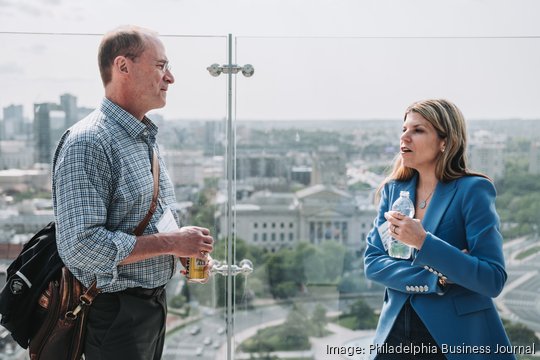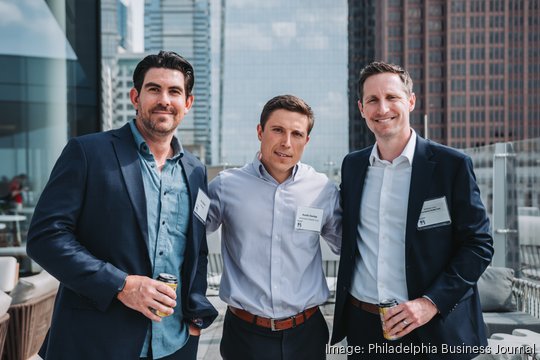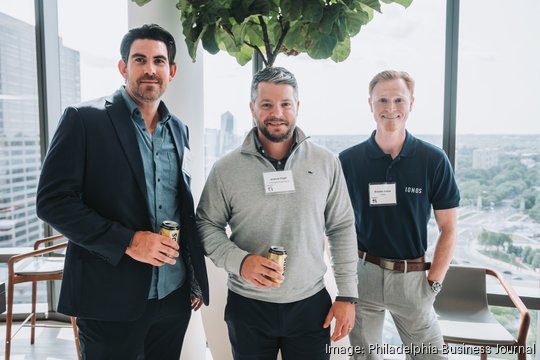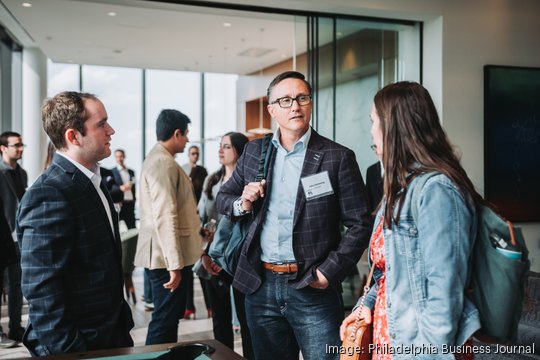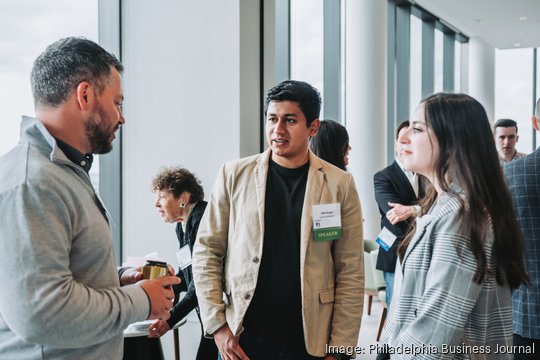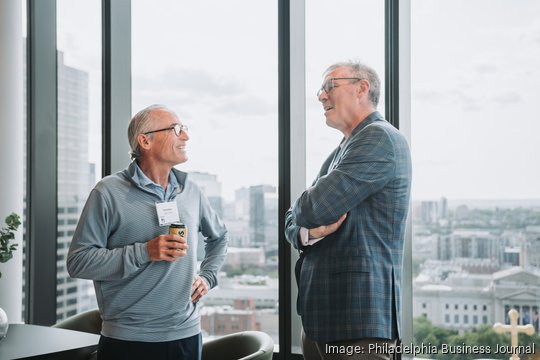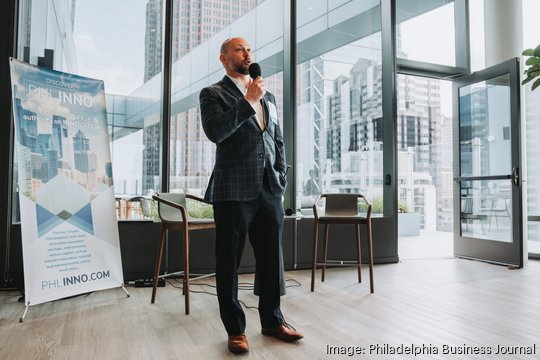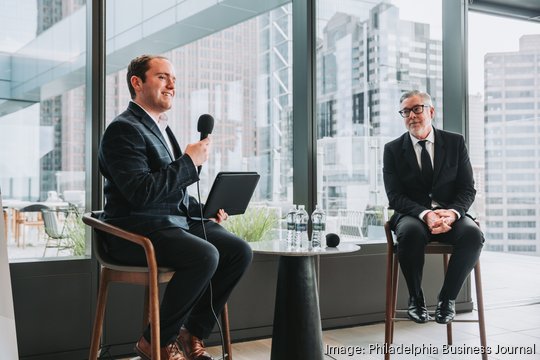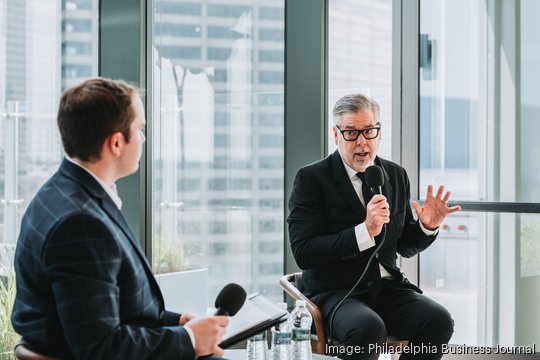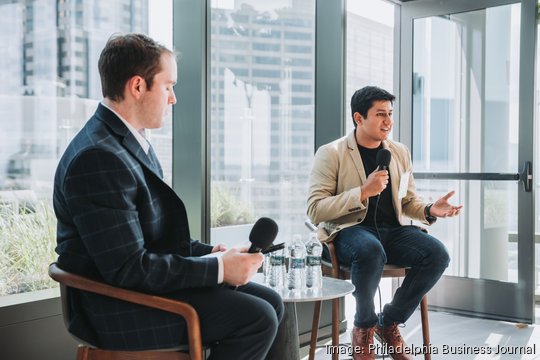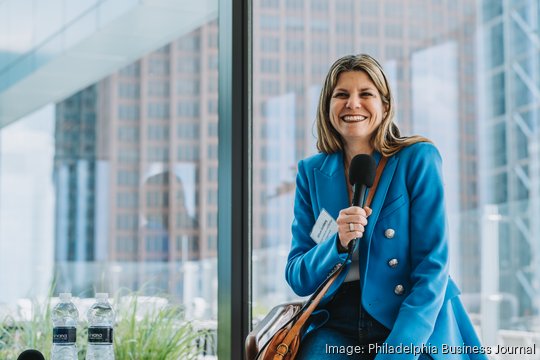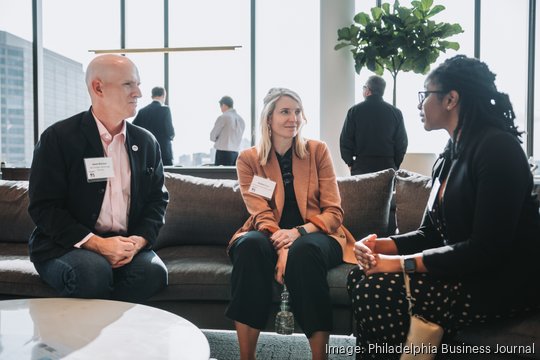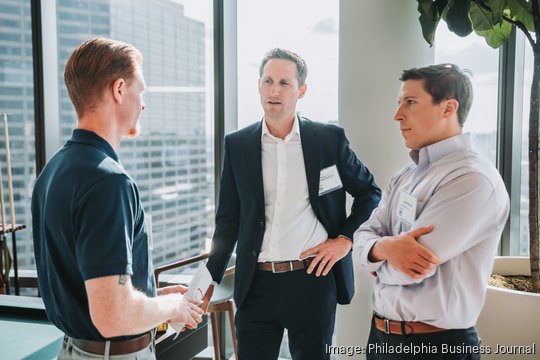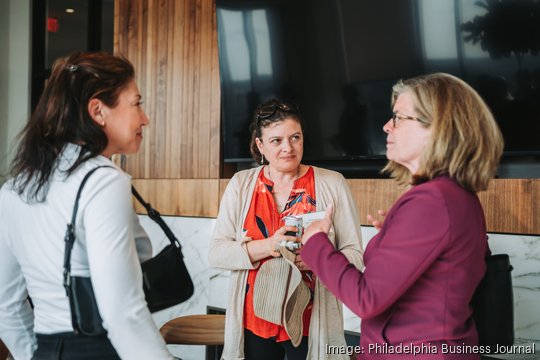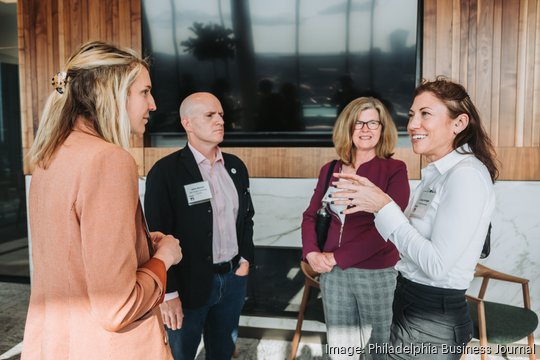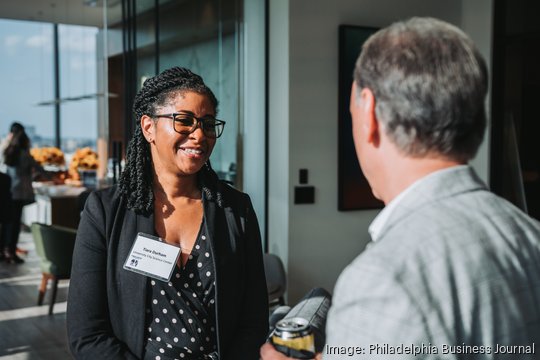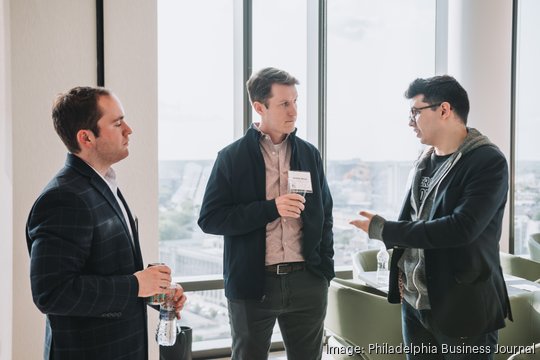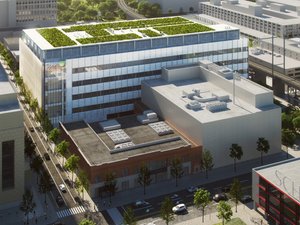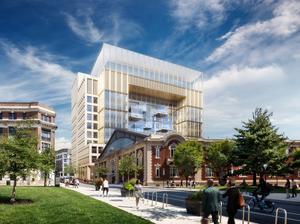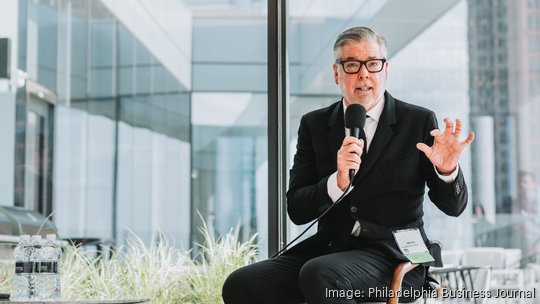
Around 2016, Drexel University President John Fry, at the time also the chair of the Chamber of Commerce for Greater Philadelphia, sought feedback on the city's innovation economy. The chamber contracted Bruce Katz of the Brookings Institute to assess the state of innovation in Philadelphia, and where the city could improve.
"His conclusion was profound, but it was also pretty straightforward," Fry said, speaking at PHL Inno's recent "Steering Startups" event at One Cathedral Square. "He said, 'This is not about innovation assets. You already have the innovation assets, but you are the most disconnected innovation economy. In fact, you're not really an innovation economy. You're a collection of innovation assets. What you guys have to do is bring it together.'"
The work that has happened since then has mostly been about making those connections, according to Fry. The collaborative approach which has taken shape among the region's many stakeholders, particularly in cell and gene therapy, "has now spawned some of the big moves that are happening over there," he said.
From his perch high above Center City, speaking to an audience gathered on One Cathedral Square's 23rd floor, Fry gestured to the view over his shoulder, at University City not far in the distance. The billions of dollars of investment taking hold in the West Philadelphia neighborhood can be seen in the cranes and new towers that dot its growing skyline — development that is not only symbolic of the work Fry has done spearheading much of that innovation-focused construction but also of the work constituents across the city have done to transform University City into one of the nation's leading innovation hubs.
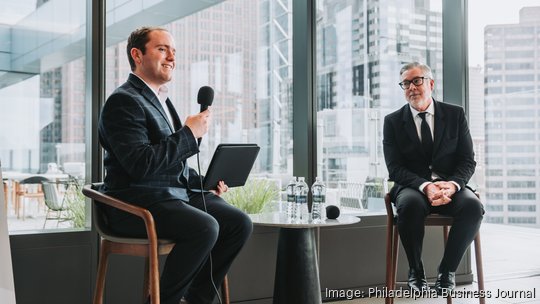
"All that [progress] was communication, collaboration, a little bit of money to connect ourselves together," Fry said.
The Drexel president said the effort identified 18 blocks along Market Street, starting at the Comcast Center and extending out to about 38th Street, as the "central artery" and "spine" of innovation in the city. Construction along that spine continues to boom, with Drexel playing a significant role.
Looking ahead, Fry pointed to innovation in precision medicine coming out the University of Pennsylvania, the Children's Hospital of Philadelphia and Thomas Jefferson University as a key opportunity for Philadelphia to continue its growth as a leader in the biotech and life sciences industry. He added that the city needs to diversify and lean into burgeoning fields like AI and cybersecurity before it falls behind, with partnerships between universities integral to spurring innovation across fields.
Fry said Drexel made a conscious decision to embed innovation into the school's mission as a way to catalyze economic development and create well-paying jobs. The school has a five-part innovation strategy:
- Talent — Fry said that Drexel, along with its fellow institutions in University City, is "overflowing with talent," and funneling that talent to local companies is key to growing the region's economy.
- Infrastructure — "When [the talent] decides they want to innovate, they are in an environment that really sets them up for success," Fry said.
- Capital — Drexel has capital programs like the recently launched Innovation Fund and the Coulter Endowment, which dole out hundreds of thousands of dollars each year to faculty and student entrepreneurs.
- Place — "We do a lot of placemaking [in University City] because we want people with small companies eventually to grow them into larger companies," Fry said, pointing to developments like Schuylkill Yards and uCity Square.
- Inclusivity — Fry said there is a constant push to source talent from the surrounding West Philadelphia community to startups, particularly through the school's partnership with the West Philadelphia Skills Initiative.
It's a plan that has worked for Drexel, especially during Fry's 13-year tenure at the school. The university has produced startups like Gopuff, Lula Convenience and Sporttrade with more than 80 coming out of the Baiada Institute, which Drexel launched in 2013 under Fry. The school has also been at the center of billions of dollars in innovation-focused development in University City.
Drexel's five-part strategy could be seen as a roadmap for the city to get behind the startup ecosystem and innovation economy. When asked how local government can better support those industries, Fry mentioned facilitating collaboration, using leftover dollars to jumpstart startup ventures, and for Philadelphia's next mayor to "encourage all of us and hold us accountable for making sure that any of the innovation work that we're doing is also inclusive."
He also called for local government to "get a little more out of the way" and give startups the freedom they need to develop.
Steering Startups
"Let's loosen up on, frankly, some of the mindless rules and regulations and regulatory regimes that honestly are just slowing us down," Fry said. "One of the things I realized in the work that we've done is you've got to move quickly. There are people who can go anywhere in the country with their ideas and with their companies. If you make it hard for them, they're out of here. They don't want any friction at all."
It's something Philadelphia will have to grapple with if it wants to compete with nearby cities like Boston, New York or Washington, D.C. The key challenge will always be keeping startups and talent in the region when high six-figure salaries and millions of venture capital dollars beckon in the top innovation hubs across the country.
On the surface, Fry said there's a basic way to keep talent and companies here, one that falls on the city as a whole.
"Maybe this is too simplistic, but the quality of life in this city is in some ways very high and other ways is really challenging," Fry said, pointing to public safety as one of the largest issues facing Philadelphia. He said the city needs to confront those challenges, but also make sure students feel connected to the city in their early college years, exposing them to Philadelphia's neighborhoods and arts and culture scene.
It's also a responsibility Fry thinks institutions can take on, or at least play a role in. Part of that is doing what's possible to make sure the resources produced by that five-part plan are accessible to students after they graduate.
"Part of it is that the institutions really need to stay with their graduates to try to figure out ways in which we can continue to support them," Fry said. "As people are finishing their program, what are the ways in which we can keep them attached? ... What can we do relative to network building, and also providing some of the space and some of the opportunities that we provide to our students and faculty to our graduates as well? We're doing some of those things right now, but we probably we need to do more. Once you're in the family, you're in the family whether you have your diploma or not."




